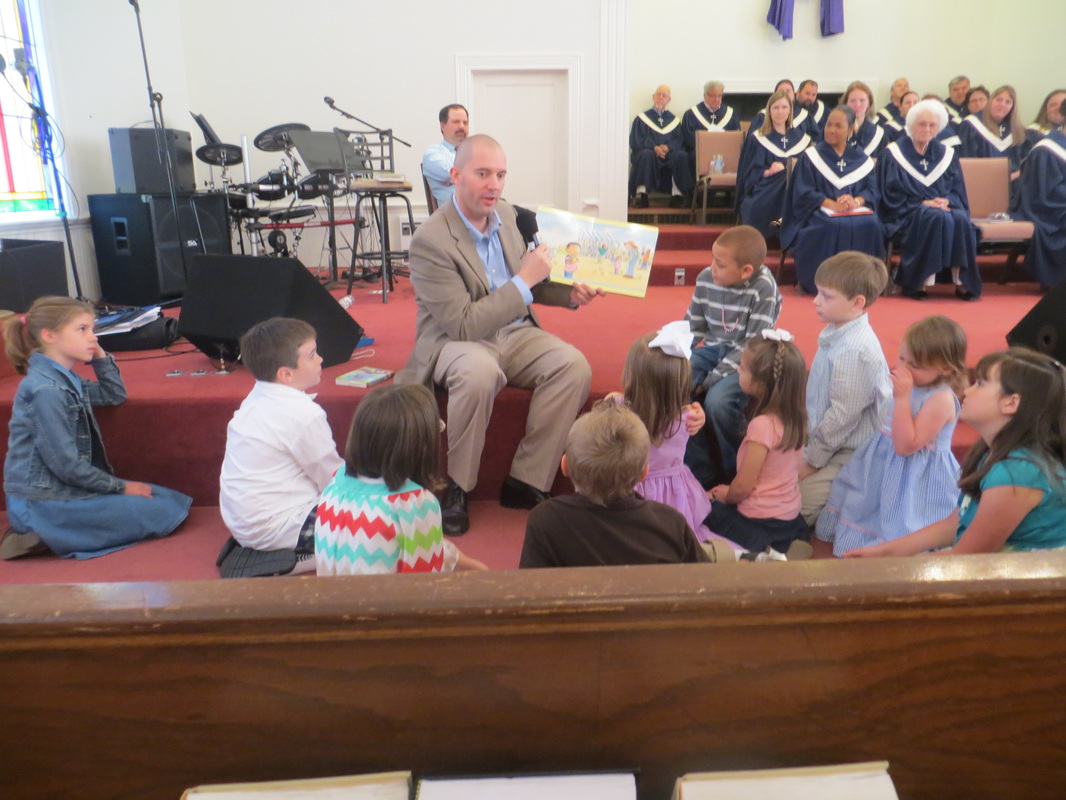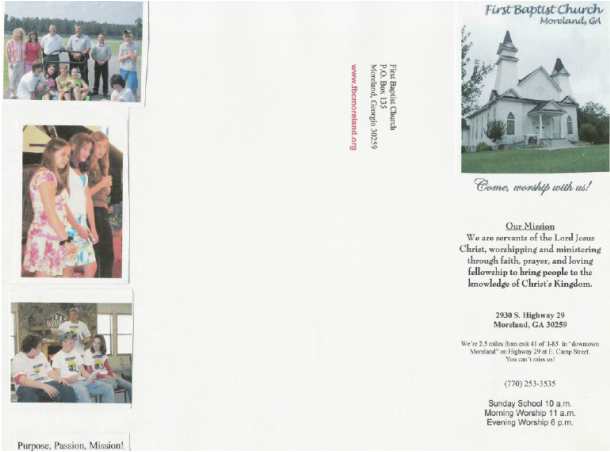Sherri and I had always served in large churches. Coming to a small-town traditional committee-led church was a change. Here's what I've learned in 9 years:
1. Church Ministry is Hard Work. Just because you're a leader or planning an event, doesn't mean anyone will attend. You have to go out and shake the bushes in order for people to attend church. Jesus said, "Go out to the roads and country lanes and make them come in" (Luke 14:23 NIV). Your church/class will not grow without evangelism, missions and outreach. You must do the "dirty work" of calling, messaging, emailing, visiting, texting, mailing postcards, and picking people up in order to have a crowd at a church function. You can't take people for granted and assume they'll come. I was in the Wal-Mart automotive department earlier this week with a flat tire inviting the service technician to Saturday's Easter Egg Hunt. Churches and Sunday School classes don't "just grow" - God blesses the witnessing worker.
2. Busy Isn't Always Better. Church programs do not grow a church. I used to believe if we did more events and more programs we'd have more people. Instead you'd have more tired people. People come and stay involved in church because of relationships. Busyness doesn't equal spiritual maturity.
3. Money Matters. It's expensive to operate an active church. I used to be embarrassed to preach on money. Now with joy and pride I tell everyone to give to the Lord. If Sherri and I can tithe, so can you. It's a honor and privilege to put money in the offering plate - an act of worship. The best investment a believer can make is giving to the advancement of the Kingdom. Good/bad offerings will set the tone for ministry events/meetings. I discovered when offerings are down it's the pastor's fault. People give to vision.
4. Inadequate Facilities will Hurt a Church. I would love to start new Sunday School classes, but...they'd have to meet in the kitchen or the playground. People will not come to your church because of the buildings, but the lack of pews and classrooms will create a plateau. Debt on a new building should be kept to a minimum - you don't want to trade ministry for mortar. "If you build it, they will come" is a lie - people will come if you invite them (see truth 1).
5. Churches Must Change. In 2005 FBCM didn't have a website. We developed a website and everyone used it to view the calendar, look at pictures, and see the weekly schedule of what's going on. Now no one views our website. 10 times more people view our church's Facebook page than our website. People and programs come and go. What worked in 2005 might not be effective in 2014. Every event, ministry, and program should receive a yearly evaluation. You must evolve to stay relevant. Leaders must educate themselves on new trends and be willing to take risks. The key to change is communication. You can change almost anything if you let people know way in advance.
6. Personal Relationships are Priority. When church attenders no longer have friends at church they quit attending or go somewhere else. I try to speak to every person I can on Sundays and Wednesdays. When I greet others, I say their name. Visitors must initially connect with a staff member and then make friends with people similar to them. You want people to take ownership of their church. They want to be proud to call you their pastor and proud of being a church member. A critical spirit lowers morale.
7. The Importance of Social Media. In September 2011 I asked for someone's email and they told me they no longer use email and only text and Facebook. That evening I joined Facebook. People at church expect you to read their tweets and posts. They'll make prayer requests and announcements on their wall - its your responsibility to read it. Social media has become the primary method of communication.
8. An Increasingly Closed Society. Gated driveways. Gated neighborhoods. Personal contact isn't as valued. People would rather connect through social media (see truth 7). People are more time conscious than ever. A year ago one of the UnEvolved Praise Band members described my office as the "black hole." You stop by to tell me one thing and you get stuck for one hour. I changed after hearing that.
9. A Whatever It Takes Attitude. To serve Christ you must serve others. Whether I'm preaching on Sundays, moving chairs in the fellowship hall, refereeing Upward soccer, teaching Sunday School at the last minute or vacuuming after VBS - you must be willing to do anything. Helping with set-up and clean-up is one of the best ways to display a servant's heart.



 RSS Feed
RSS Feed